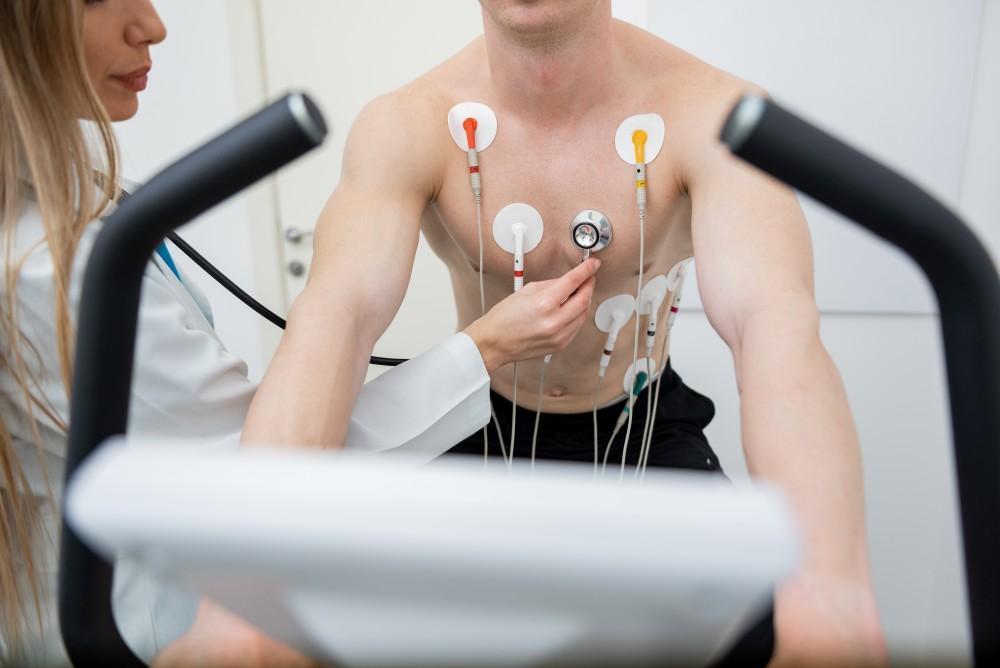
Should I Worry About Palpitations?

You’ve probably experienced a heart-pounding moment or two. Maybe you spent time on a thrill ride at a local amusement park. Or maybe you jumped during a scary movie. While the occasional heart-pounding moment is nothing to worry about, when should you worry about palpitations? Palpitations are more than just a one-time flutter. They are a feeling that your heart is beating too hard or too fast. It might even feel like it flip-flops!
If you’re concerned about any heart condition, Dr. Henock Saint-Jaques encourages you to visit us at Harlem Cardiology.
In the meantime, we answer a very common question below: Should I worry about palpitations?
All about palpitations
Heart palpitations aren’t an illness on their own. Rather, they are feelings that your heart is fluttering or pounding, and they often happen as the result of something else. Your heart might race faster if you’re nervous before a big speech, for example. Anxiety, especially panic disorder, can make you experience heart palpitations.
Other causes of heart palpitations include:
- Strenuous exercise
- Indigestion
- Stimulants, including caffeine, nicotine, and cold medications that contain pseudoephedrine
- Increased blood volume during pregnancy
- Hormone changes associated with menopause
- Fever
In many cases, palpitations are not serious and resolve when the underlying condition improves. For example, you may find that treating your anxiety helps reduce the frequency of heart palpitations you have.
When to worry about palpitations
On their own, heart palpitations aren’t typically serious, but it’s possible for palpitations to be a symptom of a more serious medical condition. Palpitations can be a sign of arrhythmia or hyperthyroidism. These are just a couple of examples of conditions that may cause heart palpitations.
To determine any underlying conditions that cause palpitations, Dr. Saint-Jacques performs a comprehensive exam, reviews your symptoms, your health history, and your electrocardiogram.
That being said, palpitations may be cause for immediate concern if they are accompanied by:
- Chest pain
- Syncope (fainting)
- Dizziness
- Shortness of breath
These symptoms may indicate a heart attack. Call 9111 and seek emergency medical attention if you or someone near you experiences these symptoms.
What to do if you experience palpitations
If you notice that you’re having heart palpitations, the first step is to determine what’s causing it. You may, for instance, cut back on coffee if you find that drinking caffeinated drinks makes your heart beat faster. Many people find that they become more sensitive to the effects of caffeine as they grow older. If that’s the case for you, you may notice your heart races more when you drink coffee.
If your heart palpitations aren’t related to stress, exercise, or caffeine, Dr. Saint-Jacques guides you with the right treatment for you. If arrhythmia is contributing to your heart palpitations, for example, we may recommend a pacemaker.
Don’t brush off palpitations. Get the peace of mind you need and find out what’s causing them. Call our Madison Avenue office at 646-381-2181 or book an appointment online.
You Might Also Enjoy...


Is It Possible to Lower My Blood Pressure Naturally or Do I Need Medicine?

What You Can Do Now to Prevent a Stroke Later in Life

3 Noninvasive Tests That Measure the Health of Your Heart

What Can I Do About My Varicose Veins?


